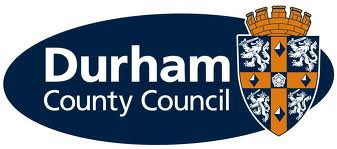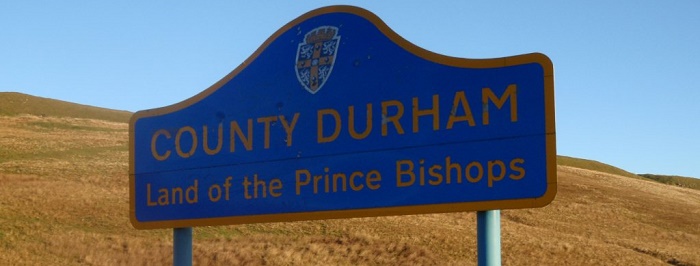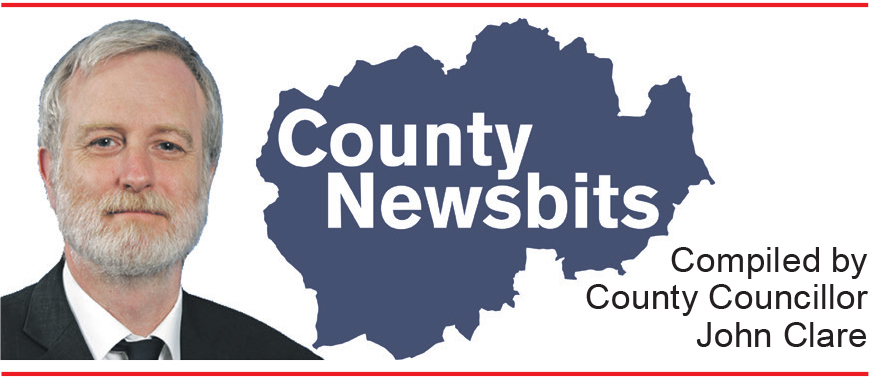Communities and businesses are set to play a crucial role in developing an inclusive and pioneering economic strategy for County Durham.
After completing an extensive review of the county’s economy earlier this year, Durham County Council now plans to create a strategy that will harness the county’s strengths, address areas for improvement and deliver what ‘levelling up’ means to local people.
For whilst the local authority will enable the Inclusive Economic Strategy, the strategy will belong to County Durham and the council is keen for residents, businesses and key stakeholders to help shape it contents.
County Durham is already a major economic force in the North East. It has 533,100 residents, supports 174,000 jobs in 14,565 businesses and contributes £9 billion to the region’s economy each year. The county also has a vibrant and inclusive cultural offer and is one of just eight locations across the country to be longlisted for the prestigious title of UK City of Culture 2025.
The Inclusive Economic Strategy aims to build on these strengths and ensure people and places are at the heart of all future plans. From creating and safeguarding jobs and improving transport infrastructure and housing, to championing sustainability and addressing the ongoing impact of the coronavirus pandemic – the ultimate aim is to rebuild a powerful economy for County Durham under a strategy that is widely supported.
Next week, the council’s Cabinet will be asked to give the go ahead to a three-month conversation aimed at allowing people and businesses to contribute. The conversation will be relevant to key audiences and will cover a range of topics including:
- How can County Durham drive economic growth, while also reducing carbon emissions?
- How can partners ensure economic growth is inclusive so that all County Durham residents can access new jobs that are created?
- How can innovation, inclusive opportunities, economic growth and higher levels of productivity be supported?
- How can the infrastructure within Durham City and town and villages across the county support economic growth?
- How can existing and new businesses be supported to allow them to contribute to sustainable economic growth?
- How can County Durham and its assets be promoted to visitors, investors and developers?
- How can partners work together effectively to ensure this all happens?
Cabinet will also be asked to agree an economic statement, responding to the findings of the review and setting out an interim economic position until the full strategy is agreed and adopted.
Central to the recommendations to Cabinet is a three-month conversation, starting in January. This will capture a massive amount of information, which will be used to produce a first draft of the strategy in the summer. This draft will then be formally consulted on, with a target to launch County Durham’s Inclusive Economic Strategy set for the autumn of 2022.
Cllr Elizabeth Scott, Cabinet member for economy and partnerships, said: “Creating an economic strategy that is truly inclusive is something we in the joint administration feel incredibly strongly about. It is only through conversations with residents, businesses and other organisations in County Durham that we can fully understand what our strengths are and the challenges we face.
“We want to know about our residents’ experiences and their expectations for the future. We want to hear what initiatives and policies our businesses think would help to drive growth and create opportunities. And we want to know what levelling up actually means to the people of County Durham so that we can create a strategy to achieve this.”
Cabinet will hear that the findings of the economic review provide an interesting starting point for these discussions, as well as demonstrating the importance of the County Durham economy to the North East.
Tourism is also identified as an important growth factor, responsible for more than 12,000 jobs, 20 million visitors and nearly £1 billion of spend in the county. County Durham also has the highest number of business start-ups in the region, with 93 per cent surviving after 12 months.
However, the review also confirmed the high levels of deprivation and health and disability related issues that exist in the county. And while economic output has increased from £6.2 billion in 2004 to £9 billion in 2019, the national output is increasing at a faster rate. This means there is a significant and growing gap between county and national performance.
Glyn Llewellyn, chair of County Durham Economic Partnership, said: “County Durham is an exceptional place, with the largest economy in the North East, spectacular landscapes, a rich heritage and vibrant communities.
“We also have an impressive range of high growth sectors and good transport links thanks to the East Coast Mainline, A1, A19, and two nearby airports.
“However, there are challenges to overcome, and, like other parts of the country, our economy continues to feel the impact of the coronavirus pandemic.
“This strategy is a chance to develop a comprehensive plan for County Durham, created by the people, communities and businesses of County Durham. By drawing on the findings of the review and working together we can create a strategy that harnesses our strengths, links people to opportunities and delivers positive change for generations to come.”
Once agreed, the Inclusive Economic Strategy will support existing plans, including the County Durham Plan, along with climate change, housing and transport strategies.
It will also demonstrate the county’s economic growth ambitions and activities to regional and national bodies, helping the council and other partners to secure further investment and support.
Durham County Council’s Cabinet will meet at 9.30am on Wednesday 15 November at County Hall in Durham City. Members of the public can watch the meeting live on YouTube at www.youtube.com/durhamcouncil.











